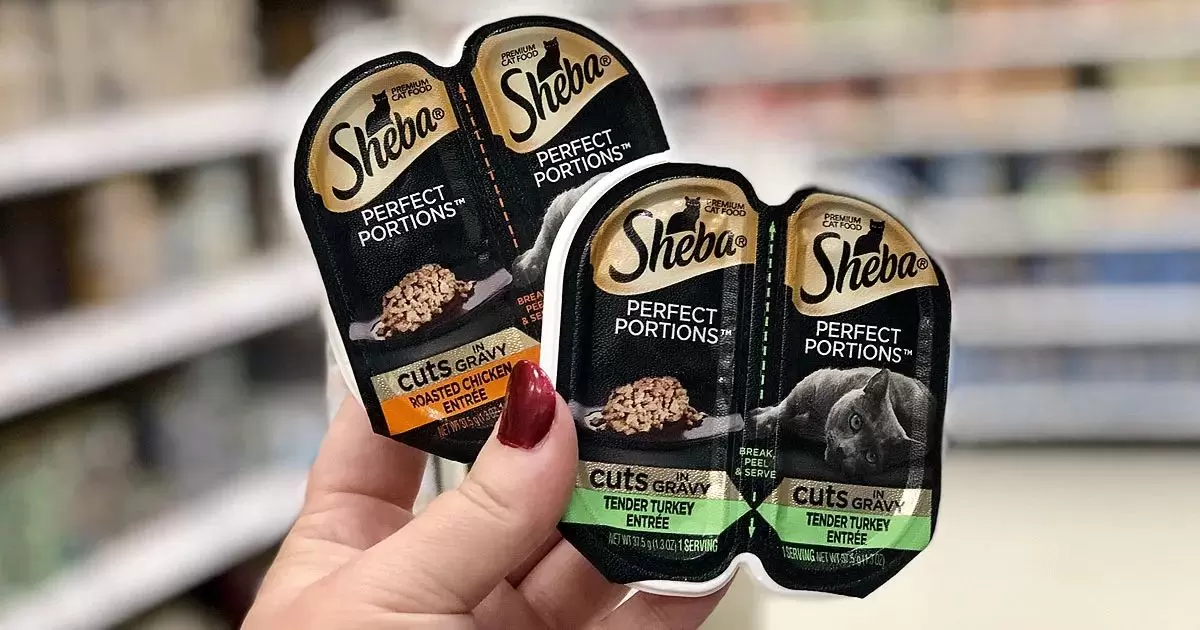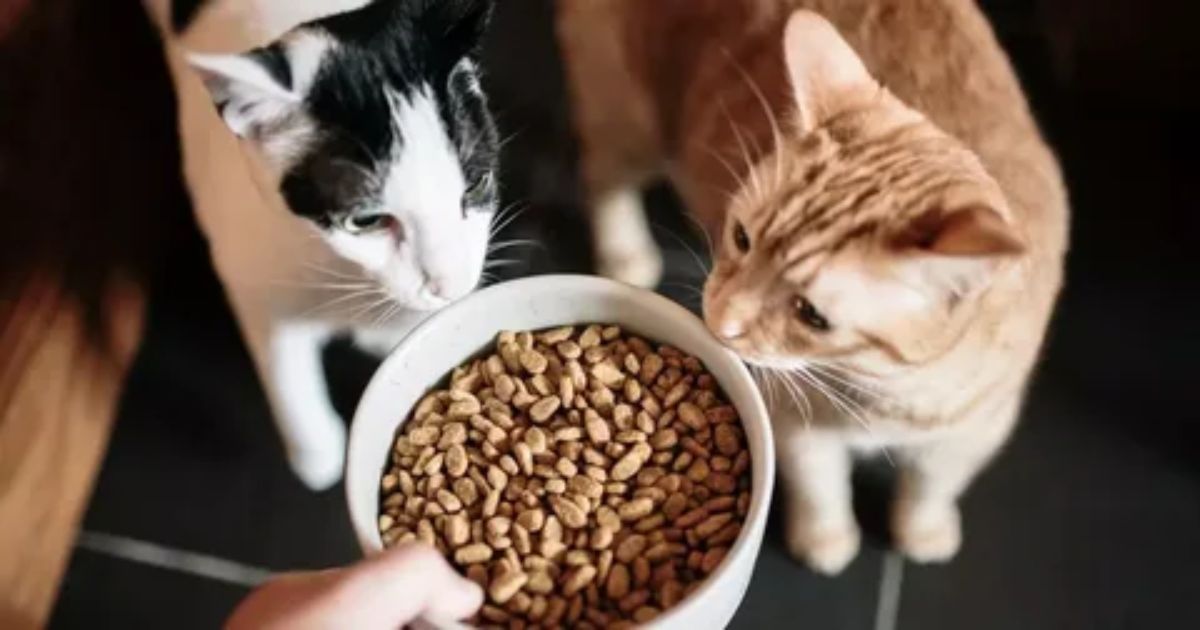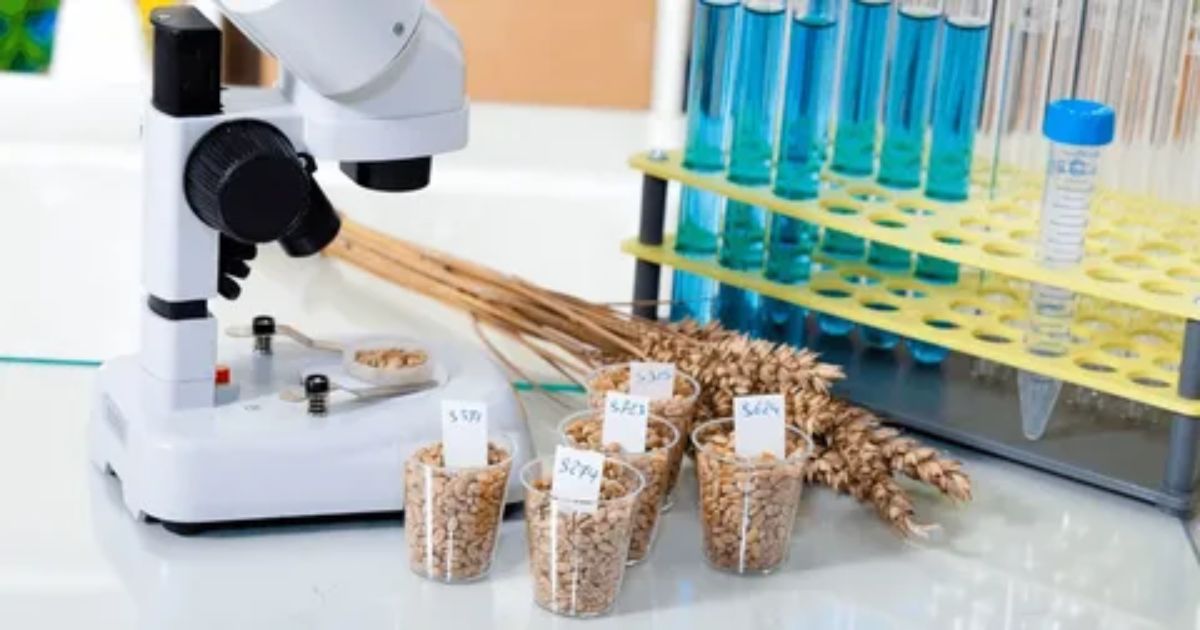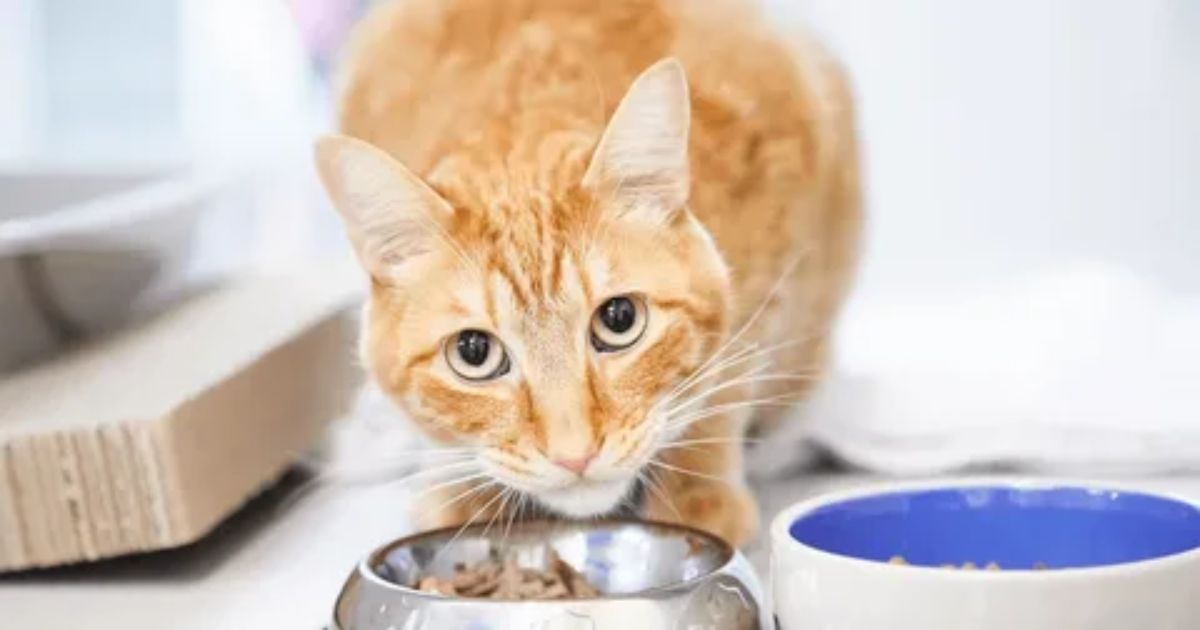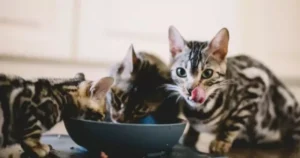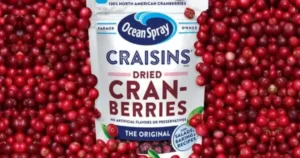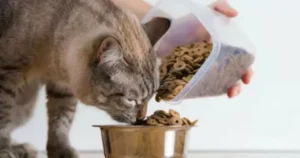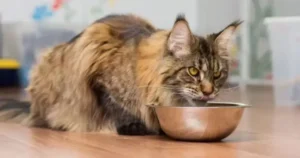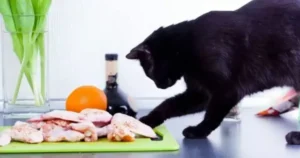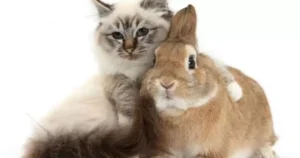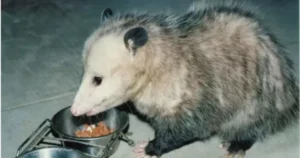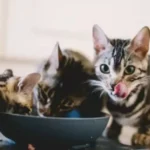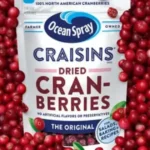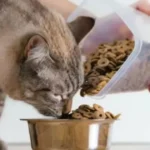While Sheba canned cat food certainly smells appetizing to felines, this Analysis determines that its reliance on artificial flavors, meat by-products, and shortage of key nutrients render Sheba less than optimal for everyday cat diets. More wholesome, protein-packed alternatives better meet cats’ complete nutritional needs.
“Is Sheba cat food good?” This pressing question gives cat parents pause when that enticing tray of Sheba gets placed in front of their beloved feline. Sheba’s meaty textures and aroma seem to suggest it’s a premium meal. Yet gazing down at the ingredients and nutrition facts at the back of a Sheba tin reveals a different story in terms of nutritional adequacy.
While no one can resist their cat happily devouring Sheba’s savory shreds and gravy at mealtime, veterinary experts advise cat owners to look deeper. Key factors like the quality of ingredients, testing rigor, and nutritional analysis determine if any cat food provides everything required in appropriate amounts for cats’ health. Only by examining the finer details can owners discern if convenient, appetite-pleasing Sheba makes the grade as a nutritious staple food for cats.
Sheba Cat Food Overview
- Produced by Mars Petcare, one of the largest pet food companies
- Comes in cans/tins of wet food with gravy or sauce
- Multiple flavor varieties featuring shreds or slices of meat or fish
Key Benefits Touted:
- Irresistible taste from high-quality proteins
- Wholesome nutrition from natural ingredients
- Convenient single-serve trays
Considering the brand’s wide distribution and alluring product packaging, many cat owners feed Sheba assuming it has good nutritional value. But always check the specific ingredients and nutrition facts before deciding if any pet food is truly “good” for everyday feline diets.
Assessing Sheba’s Ingredient Quality
Sheba, a popular brand of cat food in cans, is made by Mars Petcare. When cat owners serve their pets shredded chunks and slices of fish, chicken, or other proteins in gravy with Sheba, they often think they are giving their pets a nutritious diet. But can cats get the wholesome, well-balanced nutrition they need from this well-known canned cat food?
Sheba Classic Pate Ocean Whitefish & Tuna: Tuna, ocean fish, chicken, chicken liver, chicken broth
Sheba Meaty Tender Sticks with Chicken in Gravy: Chicken, chicken broth, chicken liver, meat by-products, artificial and natural flavors
Sheba Perfect Portions Grilled Tuna Entrée in Gravy: Tuna, broth, poultry liver, meat by-products, artificial and natural flavors
Key observations:
- Primary protein sources vary but focus on popular meats like chicken and tuna
- Multiple formulas list vague “meat by-products” instead of specific proteins
- Artificial and natural flavor additives feature prominently
While real meats like tuna and chicken provide quality nutrition in appropriate portions, veterinarians consider meat by-products, flavors, and unspecified broths lower-quality fillers. They boost taste but lack essential nutrients cats need.
Problems with meat by-products
Meat by-products usually contain non-meat parts like bones, blood, and intestines. Since the exact components aren’t specified, quality control is difficult. Many vets thus view by-products as inferior to whole meats.
Checking Adequacy of Nutrients
Cats need balanced amounts of key nutrients like proteins, vitamins, fatty acids, etc. Many authorities consider it risky to rely entirely on one food to deliver complete daily nutrition. They recommend rotating or mixing 2-3 products to reduce the risk of gaps.
Here’s how Sheba’s nutritional analysis stacks up for adult cat maintenance diets:
| Key Nutrient | Sheba Analysis | FEDIAF Minimum |
| Crude Protein | 7-11% | 26% |
| Fat Content | 4-8% | 9% |
| Linoleic Acid | 0.05-1.4% | 0.5% |
| Arachidonic Acid | <0.02% | 0.02% |
| Taurine | 0.05-0.3% | 0.1% |
| Vitamin A | 0.8-5.5 KUI/kg | 5 KUI/kg |
| Vitamin D3 | 55-450 UI/kg | 500 UI/kg |
| Vitamin E | 4-55 UI/kg | 10 UI/kg |
While Sheba meets the bare minimums for a few key items like taurine, its analysis falls short of expert recommendations for proteins, fatty acids, and other critical nutrients. This increases the risk of deficiencies if fed long-term.
Testing Standards and Safety Protocols
Reputable pet food companies follow stringent protocols to test nutritional adequacy and product safety. This includes feeding trials, quality checks for contamination, and strict specifications for ingredients and processing facilities.
Does Sheba conduct rigorous enough testing? Independent research indicates some concerns:
- No feeding trials made publicly available to validate Sheba’s long-term nutritional soundness
- Ingredient supply standards are unclear – unknown if suppliers must meet defined safety criteria
- Product tracing in case of recalls is difficult since many products are made by external co-packers rather than Sheba/Mars itself
The lack of transparency around testing diminishes confidence in Sheba’s quality standards. Minimal information is shared voluntarily to help owners make informed decisions.
Expert Veterinary Perspectives
Many veterinary nutrition specialists consider Sheba “junk food” akin to fast food in quality and nutritional value. While cats may love the strong aromas and taste, the ingredient quality doesn’t align with feline health needs. Some vets recommend trying brands like Purina One that strike a better balance between palatability and nutrition.
Common vets recommend avoiding Sheba as an everyday food, though occasional treats of a tray or two should not harm cats. They strongly suggest mixing some high protein, low carb wet foods with moderate portions of quality kibbles instead for balanced nutrition.
Some better options than Sheba include:
- Meat-rich formulas from Weruva, Wellness CORE
- Limited ingredient recipes from Natural Balance, Merrick
- Some prescription cat foods if directed by your vet
If you must feed Sheba for cost or convenience reasons, try adding beneficial supplements like fish oils or probiotics to enhance the nutritional value.
The Verdict on Sheba Cat Food
Sheba fails to deliver adequate complete daily nutrition for cats based on in-depth analysis against expert standards for quality ingredients, testing rigor, and nutritional value.
While the meaty chunks and savory gravies may seem appetizing, overuse of fillers and artificial flavors combined with lower protein and other nutrients make Sheba less than optimal as a sole sustenance.
Cat owners seeking a truly healthy primary food for their felines should consider more nutritionally balanced, meat-rich alternatives that minimize low-quality thickeners and unlabeled by-products. One popular option is Sheba cat food, which comes in convenient trays and has an enticing aroma for finicky felines. However, some veterinarians caution that the high moisture content of wet foods like Sheba’s can promote dental issues over time. So consult your veterinarian for tailored diet tips to keep your cat happy and thriving.
Conclusion
While Sheba cat food offers alluring flavors and appearances, it comes up short in key areas for feline health. This analysis shows why it fails as a significant part of a cat’s daily diet.
Sheba relies heavily on artificial flavors and lower-quality fillers like meat by-products. The nutrition provided falls short of expert guidelines for proteins, vitamins, and other nutrients. Testing standards lack the rigor vets recommend. For these reasons, Sheba alone cannot adequately sustain long-term feline health. Far better options with whole-quality meats and transparent standards exist. Cat owners should rotate a few superior foods, avoiding too much Sheba.
